9/16に開催された「招待講演1:関係学問の最前線(法制度)」のDiana Kloss教授へのQ&Aです。
Q1
You stressed that privacy protection is very important, but how would you/ law of the UK do when health protection of a worker and his/her co-workers is also important and utilizing health information of workers is necessary?
A
Occupational health (OH) professionals have a duty of confidentiality both at common law and under the ethical rules of the regulated health professions, like the General Medical Council, Nursing and Midwifery Council etc. However, there are exceptions to the rule. One exception is where disclosure is in the public interest, ie the employee’s right to have their confidence respected is outweighed by the need to protect others. An example is where the employee is unfit to drive, where the OH professional is entitled to report to the relevant person, who may be the employer, or the Driver and Vehicle Licensing Agency (DVLA) or even the police, without consent. Another example is where the employee has a mental health condition which makes them a hazard, eg there is a risk of violent behaviour. There is no exhaustive list, and each OH professional must decide for themselves whether they are justified in reporting without consent. As long as they have reasonable grounds for questioning the employee’s fitness and report only to the proper authority (and not eg the newspapers) they will not be liable either in law or before their regulator. I deal with this in the chapter on confidentiality in Kloss OH Law, 6th edition, page 85. There is also a duty to respect privacy in the European Convention on Human Rights, Article 8, but there are exceptions, including protecting the rights and interests of others, in Article 8(2).
There are other exceptions to the duty of confidence eg the duty to report communicable diseases under the Public Health Act, where a doctor commits a criminal offence if they do not report a case of communicable disease like Covid, measles, food poisoning or Ebola (there is a long list) to the public health authorities. It is all in my book.
Q2
Are there any cases where an industrial physician protects workers too much so that employers burden too much? If yes, are there proper ways to balance those situations?
A
Where an OH professional is giving general advice to an employer about the need for protection against industrial disease or injury they will usually give information about legal obligations eg statutory health surveillance of employees in relation to eg hazardous substances, noise, vibration, etc etc, where the law has imposed a duty and all that the employer is being advised to do is to comply with the law. Apart from that, the professional must comply with the contract they have with the employer, which involves taking reasonable care and not being guilty of misrepresentation. It would be misrepresentation, and also unethical, to advise an employer that they had a legal duty to, for example, provide blood pressure or cholesterol tests in the workplace, which is false, though OH would be entitled to suggest that such tests would be advantageous both to employees and the employer and offer to provide them for payment. There is an increasing tendency for employers to engage in the promotion of the health and wellbeing of the workforce and it is both legal and ethical for an OH provider to offer those services as long as they do not misrepresent that the employer has a legal obligation. Where what is being suggested is not related to essential health, eg cosmetic procedures or massage, the ethics of the profession advise that OH should not be involved in either advising the provision of or offering such services.
Misrepresentation/breach of contract might lead to a claim through the courts. Unethical behaviour might lead to disciplinary proceedings before the professional regulator.
Q3
Which organization initiated a social or political movement for widening/ broadening roles of nurses or other occupational health professionals?
In Japan, it seems unrealistic that nurses write fit-note in themselves.
A
It was the regulators, the General Medical Council, the Royal College of General Practitioners* and the Health and Care Professions Council that recommended to the Government that the power to grant a fit note should be extended to nurses, physiotherapists, occupational therapists and pharmacists. For many years the GPs have been trying to get rid of the power to grant fit notes because it takes up so much time and in practice is usually a rubber-stamping exercise. The doctor only has 10 minutes with each patient and rarely challenges their account. The attempt to persuade GPs to suggest reasonable adjustments on the fit note has been largely unsuccessful because most GPs do not have OH training and they say they do not have enough time to consider the matter. At the same time the physios and the OTs, in particular, were anxious to take on that role as in practice they have more contact with the patient than the GP. The reason the Government finally surrendered to the GPs’ demands was that the huge pressure on GPs is causing many to take early retirement or leave for other jobs. The pandemic was the last straw. That is why the Government is trying to increase OH provision, both through the NHS and through employers who are encouraged by grants and tax breaks to provide OH services.
*Although the GMC and the Royal College of General Practitioners, the regulators, were sympathetic to the problems of GPs, the campaign to expand the function of granting fit notes to nurses and allied health professionals was led by the British Medical Association, which is the doctors’ trade union. They had been advocating this for several years. The Government was persuaded to agree because of the current exceptional pressures on the GP services.
Of course, the main function of the fit note is to certify that the person is currently unfit for work and is therefore entitled to sick pay. A certificate that a person is fit to perform a safety critical function at work will often need a specially commissioned report from a GP (for which the employer will have to pay) or from an OH professional.
I think that you should be aware that, unlike in the US (I don’t know much about Japan) nurses with advanced practitioner training have taken over many of the functions formerly performed by doctors and this is accepted by the public in general. Occupational health nurses with specialist training are the backbone of OH provision and are respected as experts. Many employers accept their advice over and above the advice of the GP.
Q4
You mentioned that occupational health professionals would determine whether the content of reasonable adjustment is appropriate. In order to judge whether the content of reasonable adjustments is appropriate, in some cases, it is essential to identify the job-related limitations or restrictions caused by the impairment through the functional capacity evaluation or fitness for duty evaluation.
How do occupational health professionals participate in these evaluations? Or is it just that the general practitioner mainly determines these job-related limitations or restrictions, and the occupational health professionals prepare options for reasonable adjustments based on that opinion?
A
The law of disability discrimination is in the Equality Act 2010. My book contains detailed information about reasonable adjustments in Chapter 8. The OH professionals, both doctors and nurses, have expertise and additional training in what adjustments may be suitable to assist the job applicant or employee with a health condition to be in work and not off sick. These may be general in nature, eg phased return to work, different working hours, working from home, or more specific, eg provision of special computer software, changing some of the duties of the particular job. The GP does not usually assess these matters because they mostly do not have training in OH and, as above, most say they don’t have time to make recommendations for reasonable adjustments: only about 25% use that opportunity on the fit note. If the employer has access to OH services, they refer the person to OH. There is only a DUTY of reasonable adjustment if the person has a disability as defined in the Equality Act, though OH professionals are advised to suggest adjustments in any case where they might assist. Because of their expertise, and because they have access to the fit note from the GP, most do not have to ask for further information about an employee’s health condition. However, where they consider that they do need more information they can write to the GP with the employee’s consent asking for that. That is covered by the Access to Medical Reports Act 1988. OH merely makes suggestions about adjustments. The employer decides whether they are reasonable, which depends on how much they cost and whether they are practical. If they decide that they are unreasonable the person can challenge that decision in an employment tribunal (a court dealing with employment rights).

